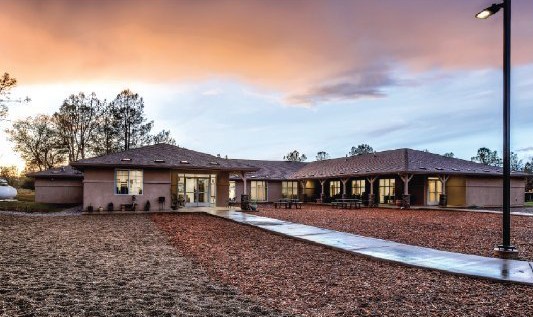About St Jude Clean and Sober Homes
St. Jude Clean and Sober Homes served the community of Redding, California, offering people with substance use disorders a sober living environment and support services. While living on site, residents received addiction treatment and attended support groups. This location of St. Jude offered care for men only. This facility is now permanently closed.
St. Jude accepted most types of health insurance, including state-financed insurance. For people who did not have insurance, there was a sliding scale for fees.
Sober Living Environment with Holistic Treatment
With modest amenities, the residents who lived at St. Jude Clean and Sober Homes were able to receive peer support and substance abuse treatment and form healthy habits. If you chose this location for treatment, you’d engage in holistic treatment approaches that included cognitive behavioral therapy and counseling that addressed the root of addiction.
Residents would also be responsible for doing their part to keep the home clean. They were also required to obtain a job that they could continue with once treatment was over.
Other Sober Homes in the Area
If you’re looking for a sober home in Northern California that is currently open there are a few that seem similar to what St. Jude used to offer. Within a structured sober living environment, About Time Recovery uses social model recovery programs and the 12 Steps to help lead their residents into a life of sobriety. Visions of The Cross offers a faith-based approach with residential and outpatient care. Good News Rescue Mission’s Sober Living Homes has recovery homes in the area that support people in their journeys of recovery.
Other Forms of Payment
Self-pay involves paying for treatment out of your own pocket. You can use savings or credit, get a personal loan, or receive help from family and friends to fund your treatment. If you don't have insurance or your insurance plan doesn't cover a specific program, self-pay can help ensure you still get the care you need.
Addiction Treatments
Levels of Care
Sober Living Houses (SLHs), aka sober homes or halfway houses, are safe, substance-free, supportive living facilities for those recovering from substance abuse. Ideal for those who've just been through inpatient or outpatient treatment, SLHs are supervised environments with rules that support sobriety, such as curfews, shared chores, and therapeutic meetings. Residents are also often trained on life skills and coping skills to make it easier to transition into society. SLHs also provide a strong sense of community that can lead to the kind of deep and lasting connections with other sober individuals that supports a new, healthy lifestyle.
Treatments
The goal of treatment for alcoholism is abstinence. Those with poor social support, poor motivation, or psychiatric disorders tend to relapse within a few years of treatment. For these people, success is measured by longer periods of abstinence, reduced use of alcohol, better health, and improved social functioning. Recovery and Maintenance are usually based on 12 step programs and AA meetings.
Drug rehab in California teaches participants constructive ways to stay clean and sober. Treatment revolves around helping individuals stop using the substance they are addicted to and learn healthy habits to avoid relapse.
Opioid rehabs specialize in supporting those recovering from opioid addiction. They treat those suffering from addiction to illegal opioids like heroin, as well as prescription drugs like oxycodone. These centers typically combine both physical as well as mental and emotional support to help stop addiction. Physical support often includes medical detox and subsequent medical support (including medication), and mental support includes in-depth therapy to address the underlying causes of addiction.
Substance rehabs focus on helping individuals recover from substance abuse, including alcohol and drug addiction (both illegal and prescription drugs). They often include the opportunity to engage in both individual as well as group therapy.
Programs
Adult rehab programs include therapies tailored to each client's specific needs, goals, and recovery progress. They are tailored to the specific challenges adult clients may face, including family and work pressures and commitments. From inpatient and residential treatment to various levels of outpatient services, there are many options available. Some facilities also help adults work through co-occurring conditions, like anxiety, that can accompany addiction.
Young adulthood can be an exciting, yet difficult, time of transition. Individuals in their late teens to mid-20s face unique stressors related to school, jobs, families, and social circles, which can lead to a rise in substance use. Rehab centers with dedicated young adult programs will include activities and amenities that cater to this age group, with an emphasis on specialized counseling, peer socialization, and ongoing aftercare.
Clinical Services
Group therapy is any therapeutic work that happens in a group (not one-on-one). There are a number of different group therapy modalities, including support groups, experiential therapy, psycho-education, and more. Group therapy involves treatment as well as processing interaction between group members.

